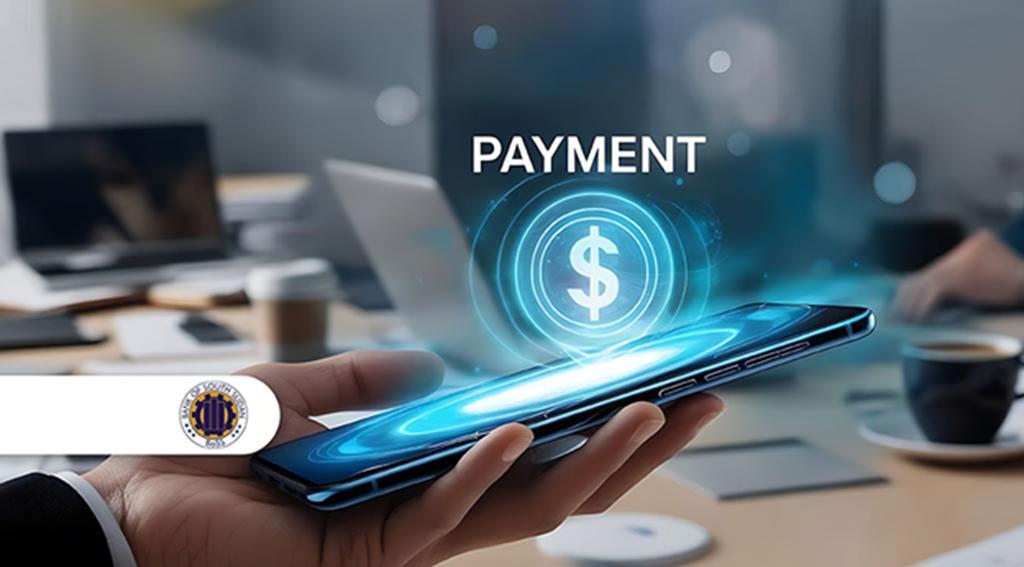Africa-Press – South-Sudan. When South Sudan’s central bank legalized mobile money in 2023, the decision was hailed by analysts as a potential breakthrough for financial inclusion in one of the world’s most fragile economies.
For a nation with virtually no formal banking infrastructure outside a few heavily guarded urban centers, and a population battered by hyperinflation and the insecurity of carrying physical cash, the promise of digital finance was revolutionary.
Telecom operators, who had for years operated nascent mobile payment services like mGurush, MTN MoMo, and Juba Express, welcomed the decision, promising to connect citizens to secure digital transactions.
On paper, the system promised to change everything. It was meant to empower market traders, allow families to send and receive money across insecure highways, and provide a stable store of value in a country where the currency’s value evaporated overnight.
Yet, nearly a year after the formal rollout, that revolutionary promise is fast becoming a mirage. Across the country – from the bustling markets of the capital, Juba, to the regional hubs of Bor in Jonglei and Aweil in Northern Bahr el Ghazal – the system is gridlocked.
Citizens line up at brightly branded agent stalls only to be told that cash is unavailable. Traders refuse to accept mobile payments, and digital balances are becoming “stuck” money, inaccessible and useless.
Experts say this frustration stems from more than just liquidity shortages—it reflects South Sudan’s deeper dependence on cash and a lack of trust in formal institutions. Many people still need to withdraw because the market ecosystem itself remains entirely cash-based.
Landlords, suppliers, transport operators, and small traders all demand physical notes, forcing digital users back into the analog economy.
What should have been a turning point in financial modernization is rapidly becoming another layer of profound frustration for ordinary South Sudanese, whose country’s economy remains gutted by years of conflict and mismanagement.
In Juba’s Konyo Konyo Market, a sprawling, chaotic hub where traders from across the region converge, the story is the same. Customers approach with phones in hand, asking to pay with mGurush or MoMo, but stallholders often shake their heads. The digital infrastructure exists, but the cash to make it real does not.
Kidega Livingstone, a concerned citizen navigating the market, blames the mobile operators for what he sees as a system built on false promises.
“The root of the problem lies with the communication companies, such as MTN and Digitel, as they should establish clear regulations for their agents. Right now, there is no accountability,” Livingstone said, gesturing to a row of closed agent shops.
“Agents who cannot fulfill payment obligations or who routinely turn away customers seeking withdrawals should not be allowed to operate. We see them accepting deposits all morning, but when you come to withdraw, the cash is suddenly gone. This lack of accountability erodes all trust in the company. If this issue is not addressed, people will lose faith in these agencies completely.”
An economist in Juba says this lack of accountability is not simply an operational failure but a symptom of a deeper credibility crisis.
“The problem is not just liquidity – it is credibility,” said Samuel Gore, an economist at a Juba-based research institute.
“People do not trust that the money they see in their phones is real, because they have lived through years of broken promises from our financial institutions. They hoard physical cash, even at great risk, because it is the only asset they truly believe they control. You cannot build a digital financial system on a foundation of profound mistrust. The technology is not the barrier; the history is.”
This frustration is not just an inconvenience; it’s a crisis of access. Akok Thuc Akok, another Juba resident, found his savings effectively held hostage inside his phone.
“I have 500,000 South Sudanese pounds sitting in my MoMo account—money that is technically mine, digitally verified and confirmed, yet completely inaccessible to me in physical form,” Akok explained, his anger palpable.
“This isn’t just an inconvenience; it’s a systemic problem that reveals a troubling double standard in how mobile money agents operate across South Sudan.”
He described being turned away by agent after agent, all citing the same “no cash” excuse.
“But here’s where the situation becomes truly infuriating and reveals the fundamental unfairness of the system: the moment I mentioned that I wanted to deposit money instead of withdrawing it, these same agents who claimed to have no cash suddenly became eager to help,” Akok said.
“Their attitudes shifted instantly. The cash shortage that was supposedly preventing them from serving me moments earlier seemed to evaporate into thin air. They were ready, willing, and able to accept my physical currency and convert it into digital funds.”
He added, “My money shouldn’t be held hostage by a system that prioritizes agent convenience over customer rights. This isn’t the financial inclusion we were promised—it’s financial exclusion dressed up in digital clothing. Until mobile money providers and their agents honor both sides of the transaction—deposits and withdrawals equally—the system will remain broken.”
While customers like Akok blame the agents, the agents themselves claim they are also victims of a dysfunctional system, caught between customer fury and a crippling liquidity shortage.
Daniel Matur Matueny, who runs a small mobile money kiosk, says the core issue is a severe shortage of cash deposits in the system, which agents rely on to pay out withdrawals.
“Sometimes, our citizens blame us for not paying them when they visit our agents, but the problem is not with us. Our customers don’t deposit money like before,” Matueny explained.
“An agent’s business is a balancing act. We need a ‘float’ of e-money to accept cash deposits, and we need a ‘liquidity’ of physical cash to pay out withdrawals. The system has collapsed because we have no liquidity. Even in my centre, there is no cash. How do I get money to pay them?”
Other agents point the finger higher up at the chain, directly at the central bank. Dut Lual Tong, another agent, argued that new anti-money-laundering (AML) regulations imposed by the Bank of South Sudan (BoSS) have crippled the system’s flexibility.
“Let our customers stop accusing us. This issue is not for mobile operator agents; it’s for the Bank of South Sudan, which has, in its effort to ban money laundering, frozen the entire system,” Tong said.
“The delays you are experiencing are the result of enhanced compliance procedures mandated by the Bank of South Sudan. These are banking sector requirements that all financial service providers must follow. We understand the frustration, but we are just following rules that have made it impossible to do business.”
In response to growing frustration, MTN MoMo issued a statement on October 7, 2025, acknowledging the liquidity challenge while assuring users that its services remain operational and secure.
“MTN MoMo is committed to ensuring smooth digital financial services for all customers in South Sudan,” the statement reads in part. “We are working closely with regulators and partners to resolve liquidity bottlenecks and expand cash availability across our agent network.”
This dysfunction radiates from the capital to the smallest towns, grinding local economies to a halt.
In Bor, the capital of Jonglei State, boda-boda (motorbike taxi) riders and small shopkeepers echo the same frustration. Biar Deng, a boda-boda driver, explained how a simple digital payment left him stranded.
“My passenger paid me with a tap of their phone, and the balance showed up instantly, 2,000 pounds. It felt easy,” Deng recounted. “But what good is that balance? I went to three different agents in the market, and each one shook their head and said, ‘No cash.’ I have the money, but I cannot use it. I ended up having to borrow fuel from a friend just to do my next job, even while my phone told me I had money. It’s humiliating.”
Mary Nyandeng, a vegetable trader in the same market, said she experimented with mobile payments but abandoned them after repeated failures to cash out. Her experience mirrors that of many small-scale traders who depend on daily turnover to restock goods. Without immediate access to cash, their businesses stall. For them, digital balances stored on phones feel like promises that cannot feed their families.
The same pattern emerges in Aweil, Northern Bahr el Ghazal, where remittances from South Sudanese living in Sudan and Uganda are crucial lifelines. Agot Wol, a mother of four, depends on money her brother sends from Kampala via MTN MoMo.
“He sends the money, and I get the message, but the struggle is to find it,” she said. “Sometimes I walk to three or four agents in one day, and they all tell me to come tomorrow. The money is there, but it is not. Sometimes, I am forced to ‘sell’ my balance. I find a trader who needs e-money, and I send them my 50,000 pounds, and they give me 45,000 in cash. I lose money just to access my own money.”
Yet, across East Africa, other markets have shown that mobile money can thrive when liquidity, trust, and interoperability align.
In Kenya, Safaricom’s M-Pesa transformed digital finance by ensuring reliable agent liquidity and regulatory backing. Over 84% of adults now use mobile money, and cash-in and cash-out points exist even in remote villages, according to McKinsey & Company.
In Tanzania, regulators enabled interoperability between all major mobile operators, leading to more than 60 million registered accounts by 2024, according to a FSDT Tanzania study.
These examples prove that when agents have cash, users have confidence, and regulators enforce fairness, digital systems can flourish.
Bank officials defend the rollout, arguing that the system needs time to mature. James Malith, a senior officer at the Bank of South Sudan’s payments department, admitted that liquidity shortages remain a “major challenge” but blamed them on “structural problems in the economy.”
He said the bank is working with telecom operators to ensure agents have cash on hand, but insiders acknowledge the central bank itself struggles to maintain currency supply.
These “structural problems” are at the heart of the crisis. South Sudan is a profoundly cash-scarce, oil-dependent economy with one of the highest inflation rates in the world. The nation is under intense international pressure to crack down on illicit financial flows, forcing the Bank of South Sudan to implement strict Anti-Money Laundering and Combating the Financing of Terrorism (AML/CFT) regulations.
These rules, while necessary on paper to satisfy international bodies like the Financial Action Task Force (FATF), have had the practical effect of freezing the small-scale commerce upon which mobile money depends. The central bank is trapped and cannot provide the physical cash needed to lubricate the economy, and its own regulations are strangling the digital alternative.
Experts say a long-term solution may lie in building shared digital public infrastructure (DPI)—an interoperable framework that connects all mobile operators, banks, and agents through a unified system. Such an approach could allow liquidity to circulate freely across networks and rebuild public trust in digital value.
The telecom operators, meanwhile, have offered a solution that rings hollow to most. A customer service manager at mGurush, speaking on the condition of anonymity, acknowledged the difficulties but insisted that digital finance remains the best long-term solution.
“We are encouraging people to accept digital payments directly instead of cashing out. The problem is that people are still stuck in a cash-based mindset,” the manager said. “This is not all the agents and the traders. Some people don’t want to put their money in the banks or in digital form because they are used to hoarding physical cash.”
But in a country where suppliers demand cash, landlords only accept cash, and bus drivers do not have “pay-by-phone” options, this advice is deeply disconnected from reality. For most South Sudanese, digital balances are useless unless they can be exchanged for the banknotes needed for daily survival.
Behind these technical and logistical failures lies a deeper, more corrosive trust deficit. This is not the first time South Sudanese have seen their savings vanish.
Many citizens still recall vividly how banks froze accounts during the 2012 currency crisis and the austerity measures that followed the oil shutdown. They remember the 2018 currency reforms, which limited withdrawals to as little as SSP 2,000 (a few dollars) per week, wiping out businesses and personal savings.
Those policies, implemented by the very financial institutions now promoting digital trust, eroded public confidence. The memory of that trauma shapes all behavior today.
“The shortage benefits those who control cash,” said a financial consultant in Aweil who requested not to be identified. “Agents are now charging customers an informal, illegal ‘fee’ to withdraw their own balances. If you want your 10,000 pounds, you have to pay the agent 1,000 pounds in cash on the side. It has turned a system meant to empower the poor into just one more tool for extortion, undermining the very idea of financial inclusion and turning it into a system that enriches the powerful.”
Source: Sudans Post
For More News And Analysis About South-Sudan Follow Africa-Press






